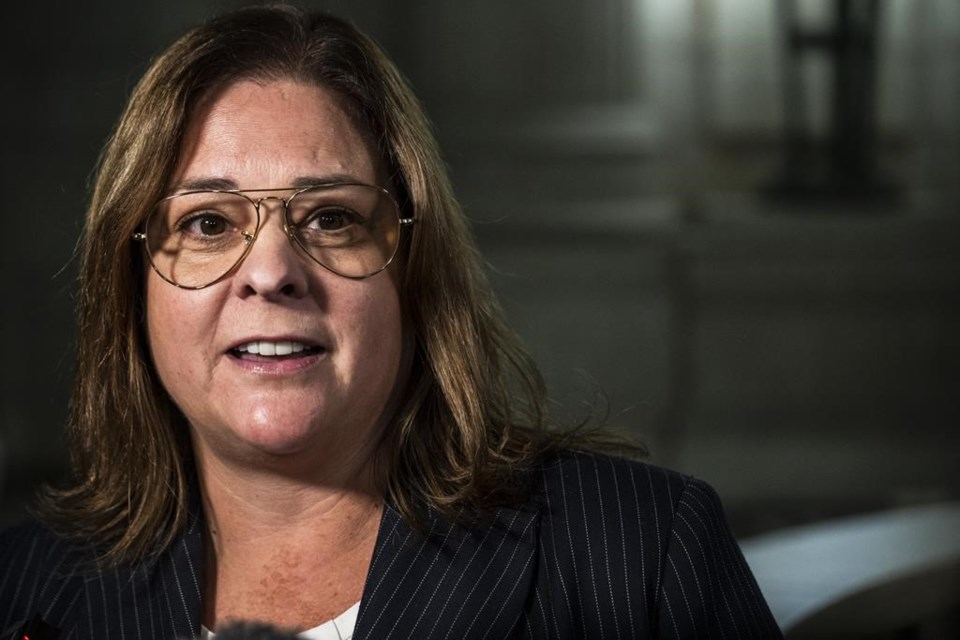WINNIPEG — Manitoba Progressive Conservatives will have to wait another year before electing a new leader to replace former premier Heather Stefanson.
The party, which had been contemplating a leadership race this fall, announced Tuesday that it has scheduled the leadership vote for April 26 of next year.
Wayne Ewasko, who has been serving as interim leader since Stefanson stepped down in January, said the extra time will let the party prepare.
"I think it definitely gives more time for us to sign up members and to get more Manitobans involved," Ewasko told reporters.
The Tories were in office for seven years before losing last October's provincial election to the NDP. Stefanson announced her plan to resign on election night, but stayed on until January, when the party sorted out new rules for leadership races.
The extra time may also give the party more time to replenish its coffers.
Documents filed with Elections Manitoba show the Tories raised less money than the NDP in the election campaign.Â
The NDP garnered just over $971,000 in contributions, fundraising and other income en route to victory. That was roughly $307,000 more than what the Tories raised.
The NDP also outspent opponents, with $1.8 million in expenses and transfers to candidates compared with $1.5 million for the Tories.
Both parties posted deficits for the campaign of more than $850,000.
The NDP's better fundraising was to be expected, one political analyst said, given the Tories had trailed in opinion polls for two years before the election.
"The anticipation for a couple of years that (the NDP) was headed to victory based partly on anger toward the PCs helped with the recruitment of members and the appeals to donors," Paul Thomas, professor emeritus of political studies at the University of Manitoba, said.
For next year's leadership contest, the Tories are aiming to avoid the controversy that flared up when Stefanson narrowly won the leadership in the fall of 2021.Â
There was a last-minute surge in party memberships and many members complained they did not receive mail-in ballots in time to vote. An internal review of that race's problems pointed to other issues, including the possibility that the party's one-member, one-vote system left it open to a takeover from single-interest outsiders.
The new leadership rules will allow for electronic voting as well as the traditional mail-in ballots, although the final decision will rest with a committee governing the contest.
The new rules continue to allow every Tory member to vote, but they also incorporate a point system to limit the weight of constituencies with big membership numbers. The aim is to ensure that the leadership race cannot be decided by a flood of new members in one or two constituencies.
While the Tory leadership race is still months away from starting, some Tories have signalled they could throw their hat in the ring.
Ewasko would not rule out a run Tuesday. Former cabinet minister Kevin Klein, who lost his seat in last year's election, has said he is considering a run. Obby Khan, a former cabinet minister who is now the party's finance critic, has also hinted he may take a run at the party helm.
This report by The Canadian Press was first published April 16, 2024.
Steve Lambert, The Canadian Press




